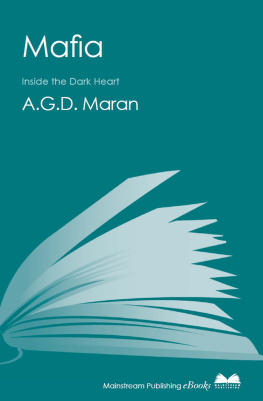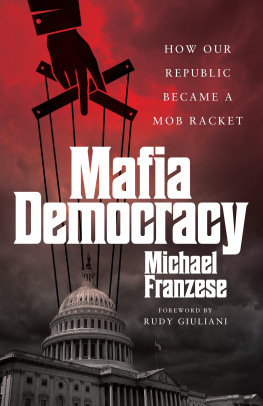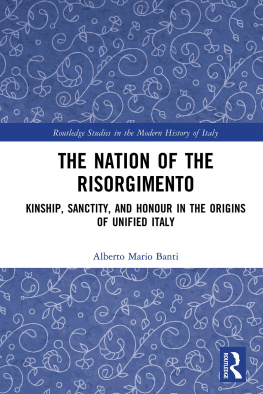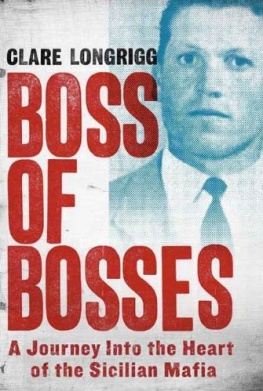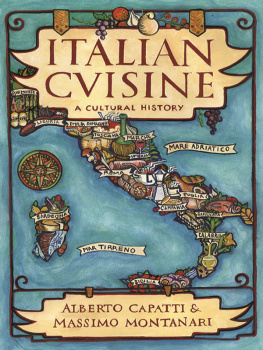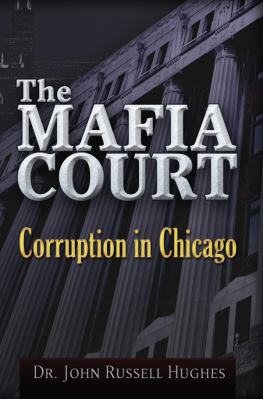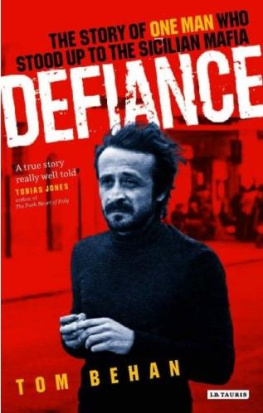
Corruption, Mafia Power and Italian Soccer
Whilst corruption and organised crime have been widely researched, they have not yet been specifically linked to sport. Corruption, Mafia Power and Italian Soccer offers an original insight into this new research area. Adopting a psycho-social approach based mainly on Pierre Bourdieus praxeology, the book demonstrates that corruption and the mafia presence in Italian soccer reflect the Italian socio-political and economic system itself.
Supported by interviews with security agency officials, anticorruption organisations and antimafia organisations, and analysing empirical data obtained from a case study of Operation Dirty Soccer, this important study explains why mafia groups are involved in soccer, what the links are to political corruption and what might be done to control the problem. It also examines the mechanisms that make it possible for mafia groups and affiliates to enter the football industry and discusses how mafia groups exploit and corrupt Italian football.
This is important reading for undergraduate and postgraduate students, researchers and academics working in the areas of sociology, criminology, policing, anthropology, the sociology of sport, sport deviance, sport management and organised crime. It is also a valuable resource for practitioners in the football industry.
Alberto Testa is Associate Professor in Criminology at the University of West London, UK, and a visiting Senior Research Fellow at the SportcomLab of the University of Bologna, Italy.
Anna Sergi is Lecturer in Criminology and Deputy Director of the Centre for Criminology at the University of Essex, UK. She is an International Visiting Fellow at the University of Melbourne, Australia, and Chair of the Early Career Researchers Network of the British Society of Criminology.
Routledge Research in Sport, Culture and Society
Rethinking Olympic Legacy
Vassil Girginov
Surfing, Sex, Genders and Sexualities
Edited by lisahunter
The Aesthetics, Poetics, and Rhetoric of Soccer
Edited by Ridvan Askin, Catherine Diederich and Aline Bieri
Politics and Identity in Chinese Martial Arts
Lu Zhouxiang
Corruption, Mafia Power and Italian Soccer
Alberto Testa and Anna Sergi
Researching Difference in Sport and Physical Activity
Edited by Richard Medcalf and Chris Mackintosh
Surfing and Sustainability
Gregory Borne
Women, Sport and Exercise in the Asia-Pacific Region
Domination, Resistance, Accommodation Gyozo Molnar, Sara N. Amin and Yoko Kanemasu
For more information about this series, please visit: www.routledge.com/sport/series/RRSCS
First published 2018
by Routledge
2 Park Square, Milton Park, Abingdon, Oxon OX14 4RN
and by Routledge
711 Third Avenue, New York, NY 10017
Routledge is an imprint of the Taylor & Francis Group, an informa business
2018 Alberto Testa and Anna Sergi
The right of Alberto Testa and Anna Sergi to be identified as authors of this work has been asserted by them in accordance with sections 77 and 78 of the Copyright, Designs and Patents Act 1988.
All rights reserved. No part of this book may be reprinted or reproduced or utilised in any form or by any electronic, mechanical, or other means, now known or hereafter invented, including photocopying and recording, or in any information storage or retrieval system, without permission in writing from the publishers.
Trademark notice: Product or corporate names may be trademarks or registered trademarks, and are used only for identification and explanation without intent to infringe.
British Library Cataloguing-in-Publication Data
A catalogue record for this book is available from the British Library
Library of Congress Cataloging-in-Publication Data
A catalog record for this book has been requested
ISBN: 978-1-138-28993-2 (hbk)
ISBN: 978-1-315-26677-0 (ebk)
Typeset in Perpetua
by Apex CoVantage, LLC
To my Franco and Giovanna with love.
Alberto Testa
A mamma Teresa, pap Lullo ed Elida.
Anna Sergi
Contents
by Alberto Testa and Anna Sergi
Until relatively recently, corruption and organised crime were usually treated as discrete entities. For instance, the UN adopted its Convention against Transnational Organized Crime in 2000 symbolically, in Palermo and a quite separate Convention against Corruption in 2003. Fortunately, an increasing number of states and international organisations now realise that organised crime and corruption are often closely intertwined: awareness of the overlaps and linkages is vital if these negative phenomena are to be adequately countered.
Another fairly recent development is the broadening of the definition of corruption to cover not only public officers but also entrusted power-holders in the private sector and even in sport. While the World Bank for decades preferred the narrow definition of corruption that required that a public official be involved, it has since 2017 begun to use the broader approach that had been adopted many years earlier by agencies such as the worlds leading anti-corruption nongovernmental operation (NGO), Transparency International. Thus, it is now normal to refer to corruption in FIFA, for example, whereas misconduct in a body of that sort would in the past usually have been labelled certainly by specialists according to its specific nature (e.g. bribery, embezzlement, money laundering, etc.).
Much of this change relates to the global spread of neo-liberalism, which blurs the boundaries between the public and private sectors. Increasingly, authorities, the mass media and members of the general public realise that corruption can be found far beyond the public sector and that the boundaries between corruption and organised crime have become ever more hazy. It is thus highly appropriate that Alberto Testa and Anna Sergi provide us in this simultaneously fascinating and disturbing book with a prime example of the ways in which organised crime and corruption interact and overlap.
It is also very fitting that the case study they explore so thoroughly is primarily based in Italy. While criminologists often draw a distinction between organised crime and mafia (the latter being a specific variant of the former), many journalists and ordinary members of the public use the terms interchangeably although the true mafia originates from Italys most southerly region, Sicily. In this book, the authors also explore the role of two of Italys other crime syndicates, the Naples-based camorra and in particular the Calabrian ndrangheta, in corruption. Italy is also the home of one of the best-known cases of mass political corruption, the so-called Tangentopoli scandal of the early-1990s and of a man that some have alleged is the most corrupt West European leader of recent decades, Silvio Berlusconi.
But Italy is not only a prime example of a country with high levels of organised crime and certainly by European standards corruption: it is also home to one of the worlds leading soccer teams. The Italian national team has won the FIFA World Cup no fewer than four times: only Brazil has won it more (five times). Quite simply, football ( calcio ) is by far the most popular sport in Italy, as well as globally and Italians love to bet on it. This is an obvious target for organised crime and corrupt officials.




